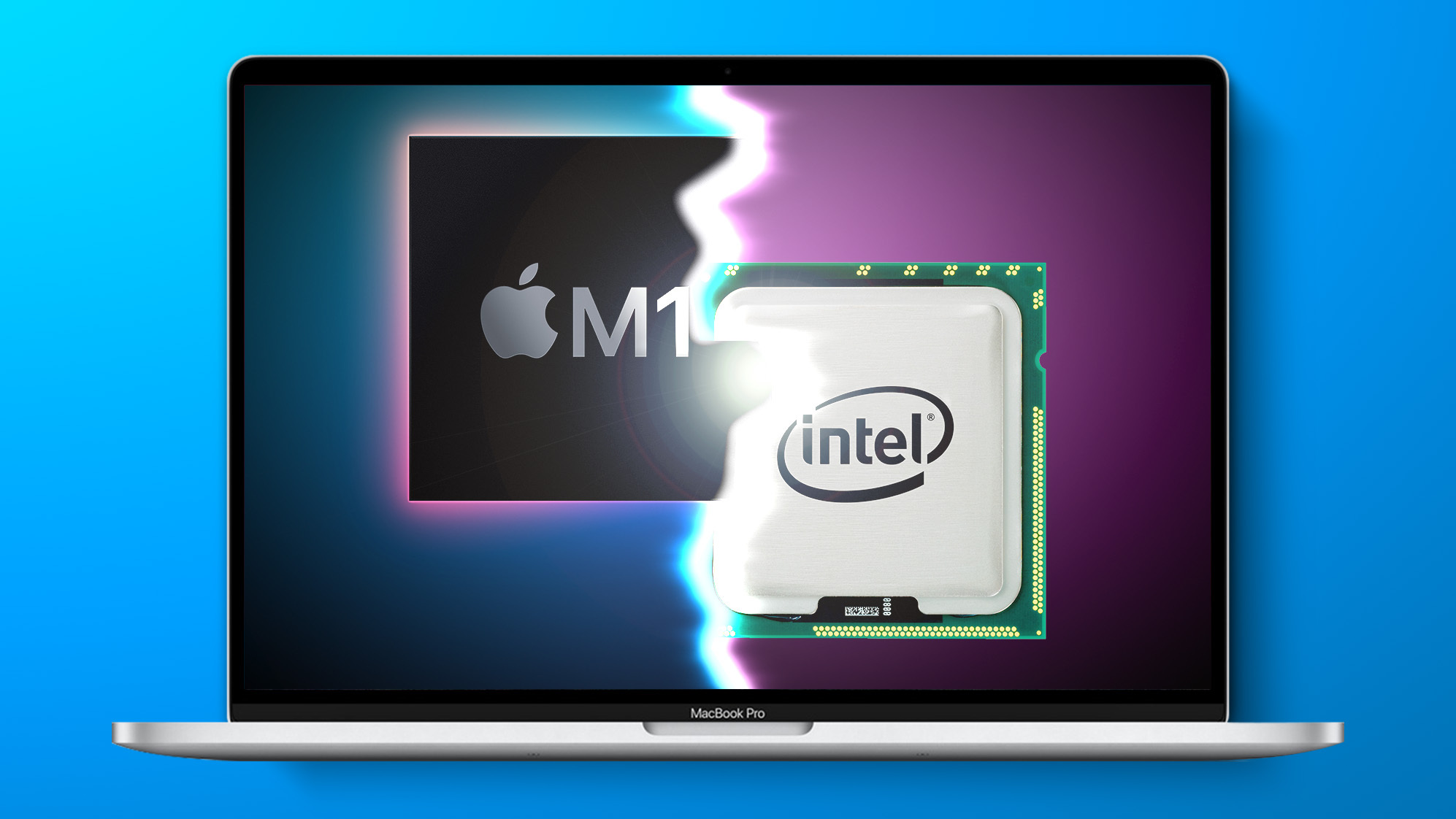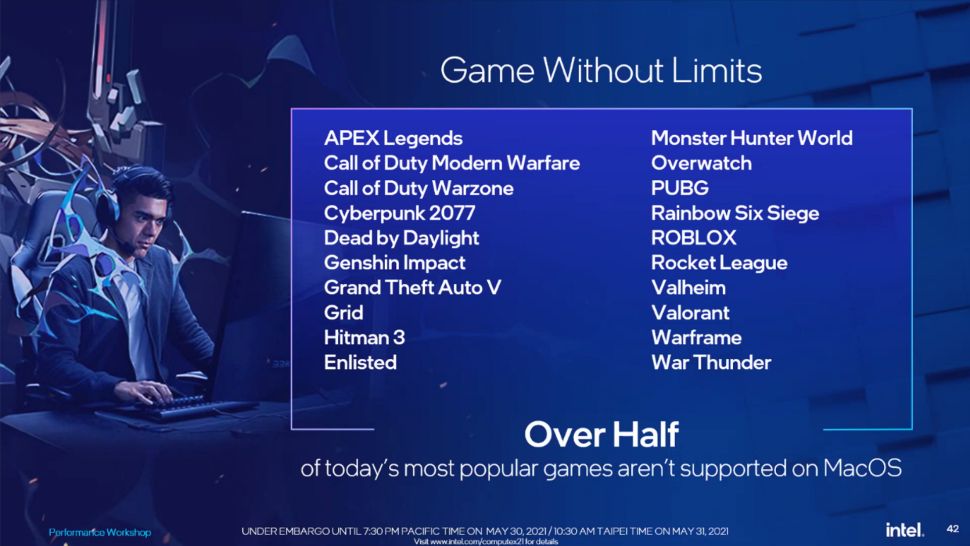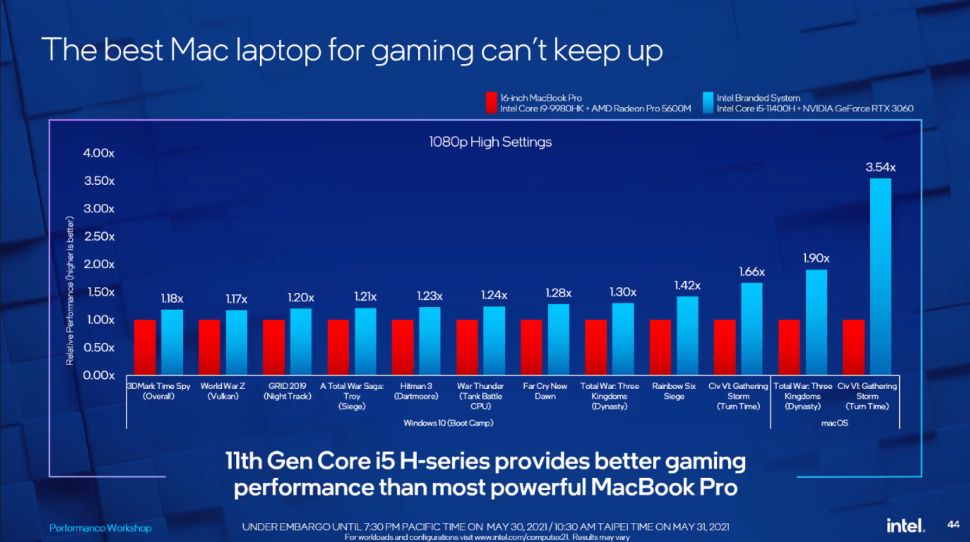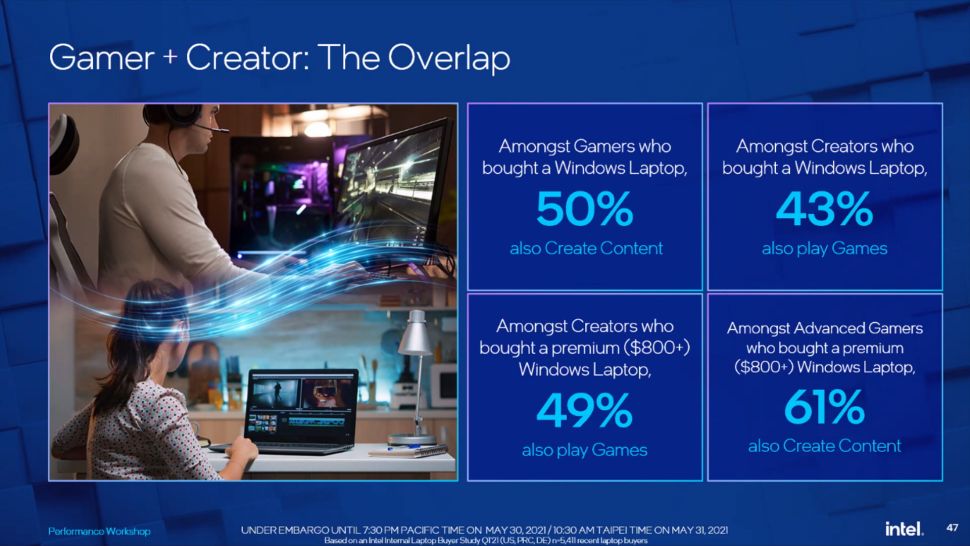Intel are worried that Apple is ringing the death knell of the x86 instruction set. M1 changes the narrative that ARM is only useful for low power devices and can’t compete with desktop class x86 machines. The M1 demonstrates an ability to do high performance and graphics that wasn’t expected of it. The current expectation is that Apple is only just starting and Intel is concerned because if Apple can keep up their performance increases then Intel’s likely going to struggle to compete.Um aren’t they just proving what Apple said. The chips Intel were making for Apple Mac’s were falling behind. Apple has been frustrated with them for years. Intel said that wasn’t true now they are saying it is.
What are they afraid of. Apple M1 really isn’t their competition.
Apple also provided an ARM laptop that can run Windows for ARM that doesn’t suck. Microsoft have been trying to get Windows on ARM up for a while but struggled and this shows Microsoft a path forward. There is plenty of content out there showing how to get the Windows on ARM running on the M1 via virtualisation with reasonable performance even for x86 apps.
ARM is an architecture Intel divested in and Apple is removing the moat around ARM compatibility against x86. Microsoft’s improved x86 emulation on ARM is removing the legacy support barrier there as well whilst M1 provides a more performant platform. Of course I’d be sand bagging Apple at any point because Apple has frequently been an industry trend setter and you want to FUD that as long as you can, even if it means releasing benchmarks comparing your own CPUs.
Last edited:






